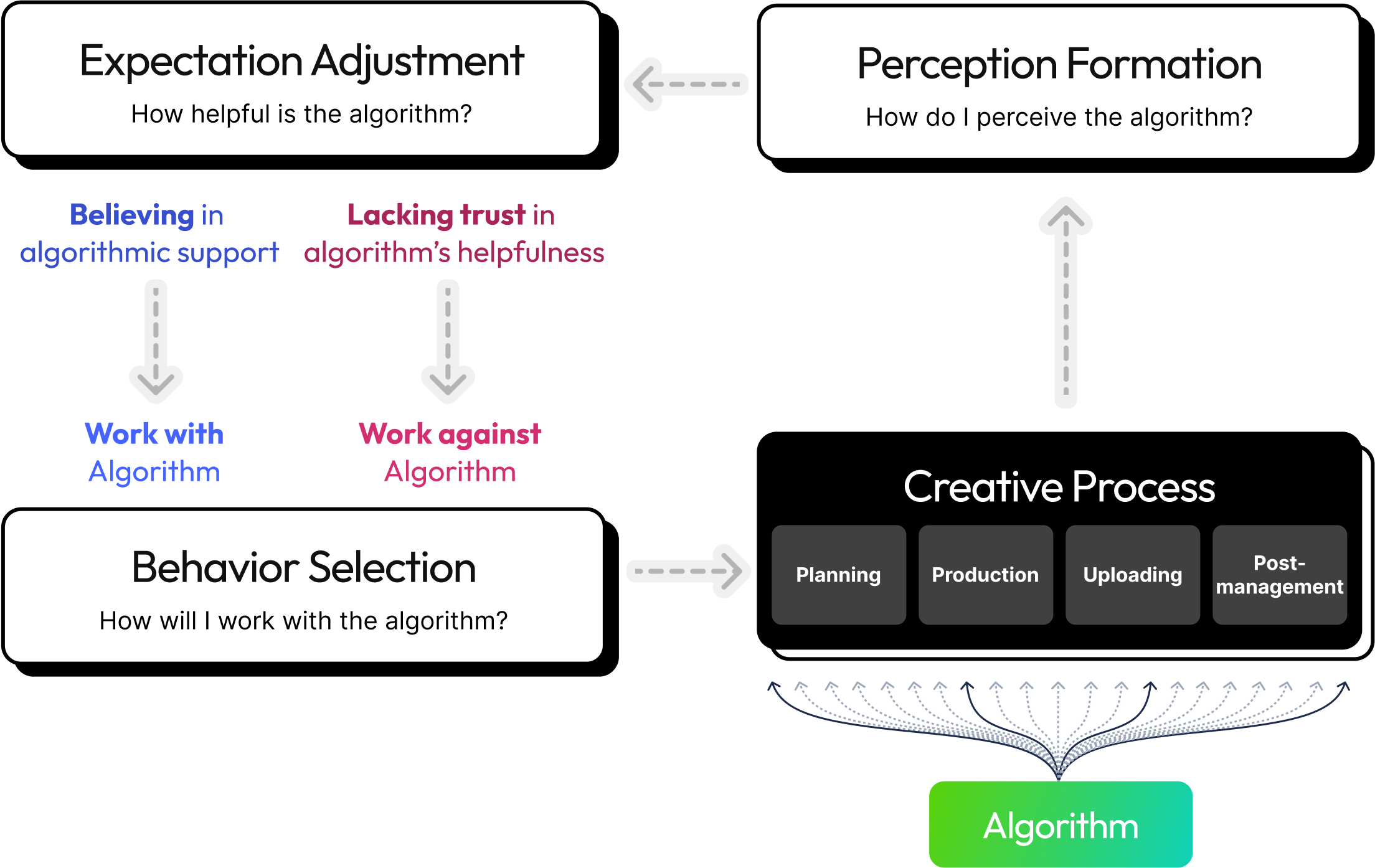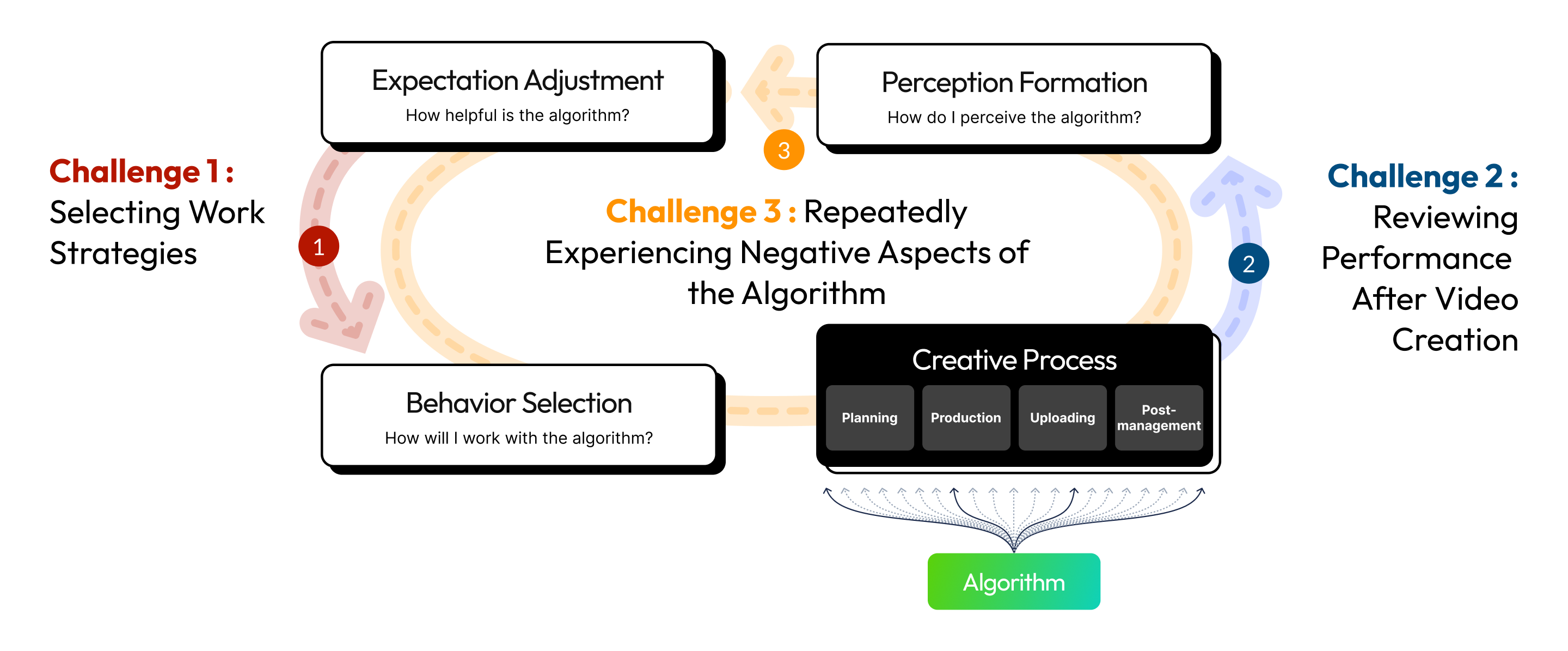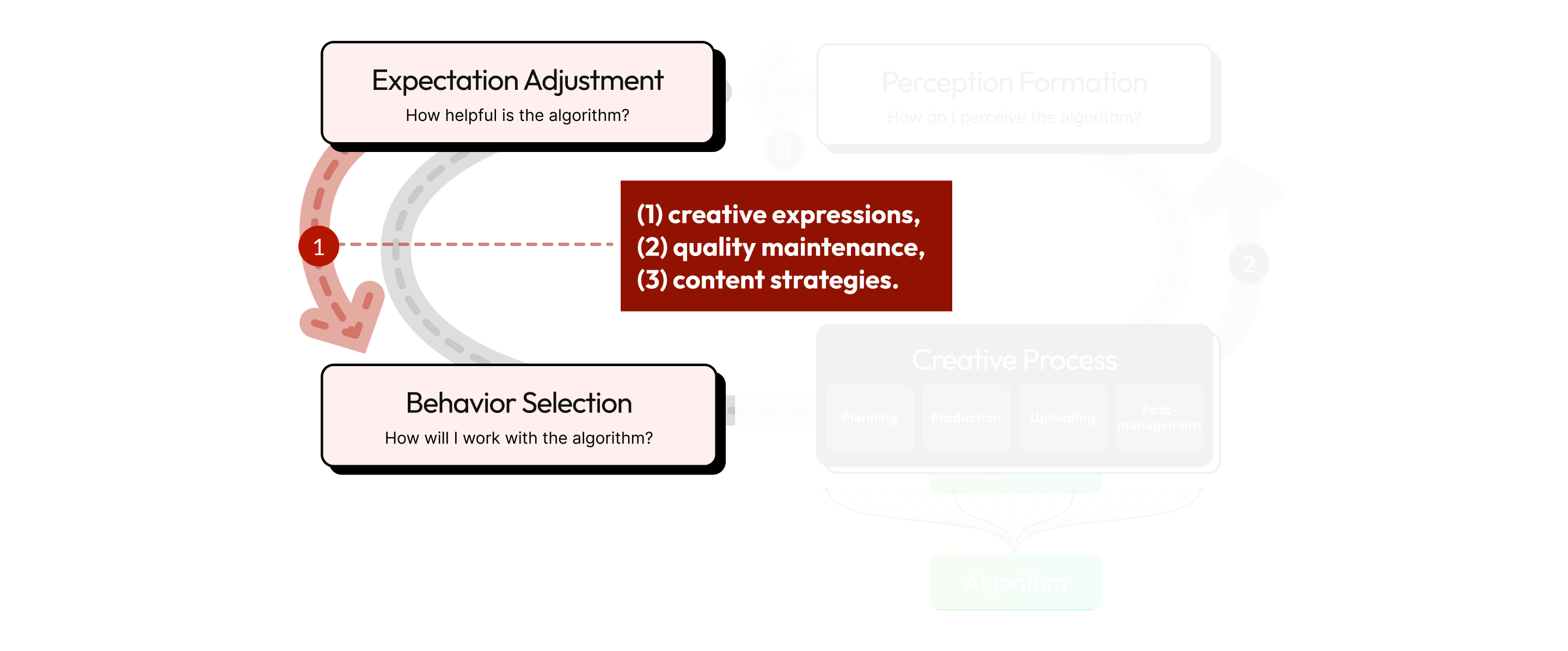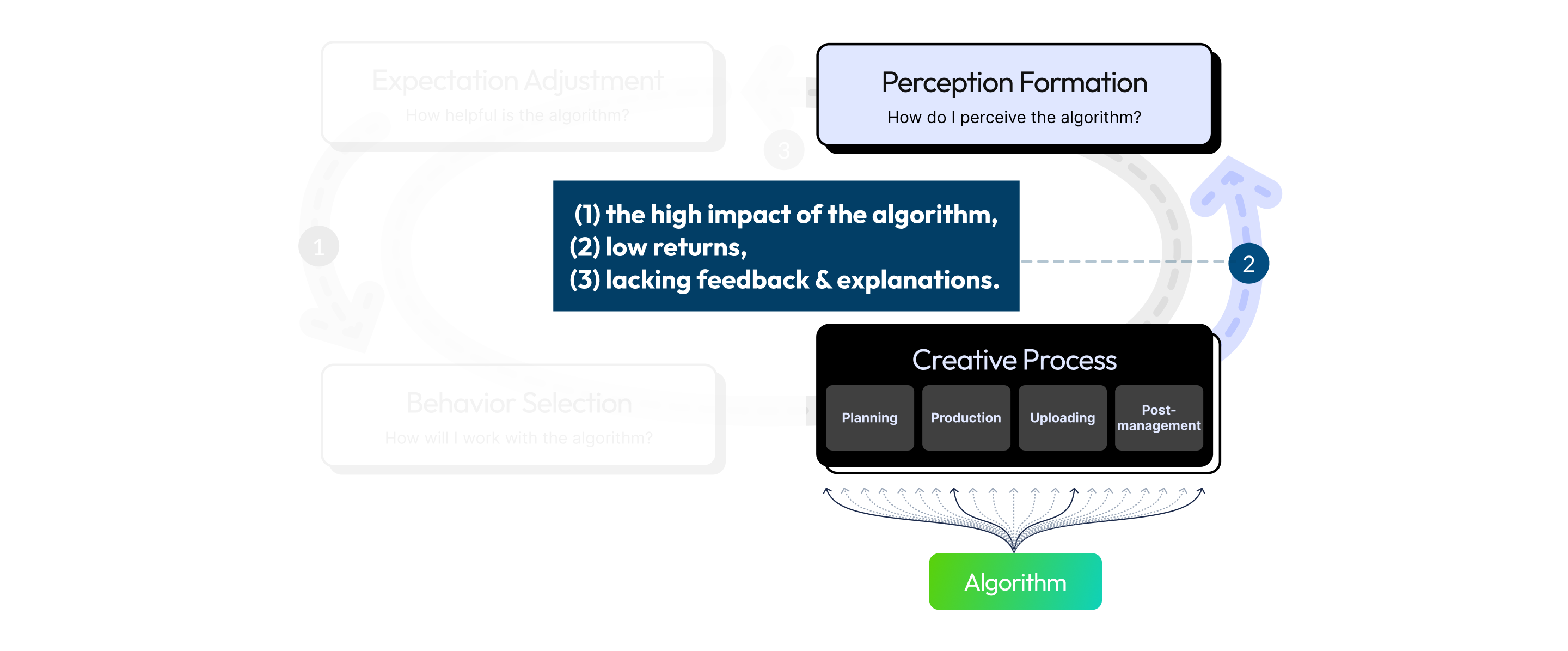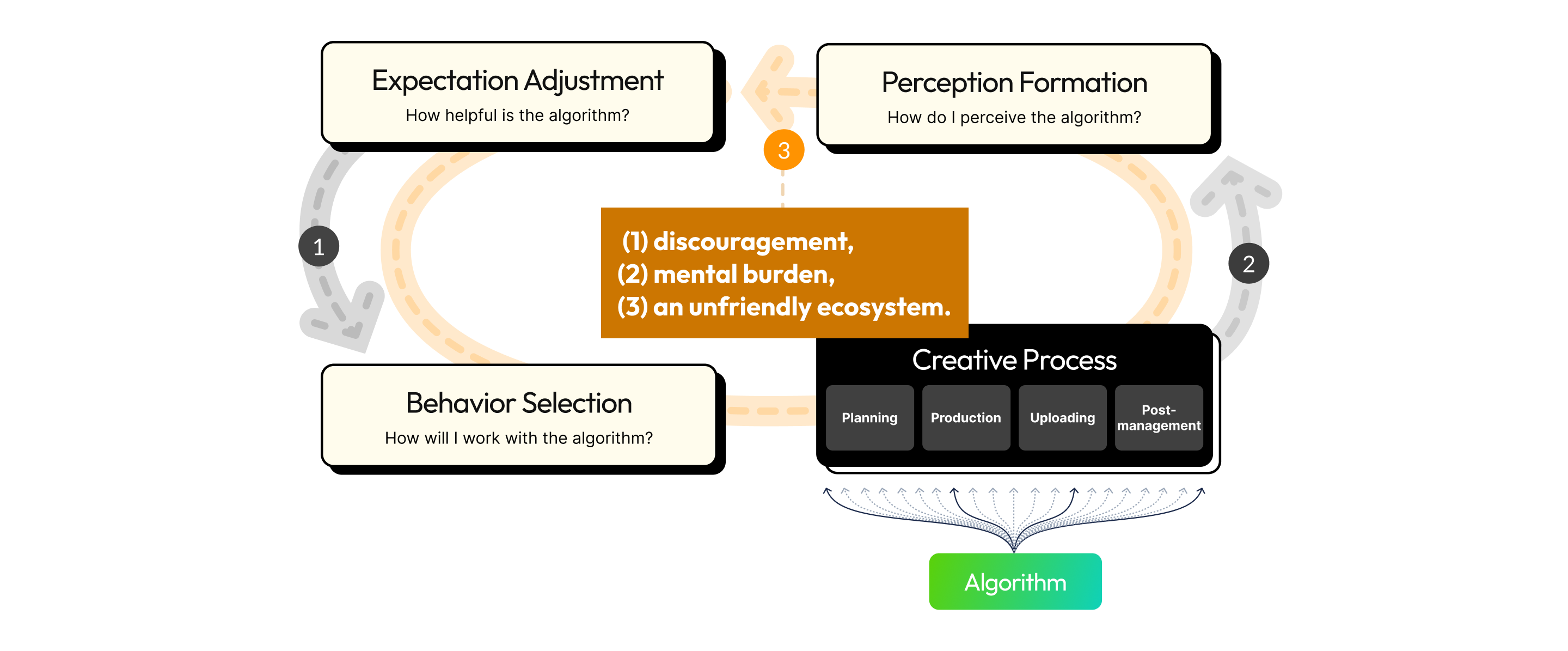Behaviors, Challenges, and Design Opportunities in Algorithmic Platforms
Abstract
In many creator economy platforms, algorithms significantly impact creators' practices and decisions about
their
creative expression and monetization.
Emerging research suggests that the opacity of the algorithm and platform policies often distract creators
from their
creative endeavors.
To study how algorithmic platforms can be more `creator-friendly,' we conducted a mixed-methods study:
interviews (N=14)
and a participatory design workshop (N=12) with YouTube creators.
Through the interviews, we found how creators' folk theories of the curation algorithm impact their work
strategies —
whether they choose to work with or against the algorithm — and the associated challenges in the process.
In the workshop, creators explored solution ideas to overcome the aforementioned challenges, such as
fostering diverse
and creative expressions, achieving success as a creator, and motivating creators to continue their job.
Based on these findings, we discuss design opportunities for how algorithmic platforms can support and
motivate creators
to sustain their creative work.
Mixed-methods Approach
We took a mixed-methods approach combining semi-structured
interviews and participatory design workshops. Through the semi-structured
interviews, we explored the needs of creators when interacting
with algorithms in the platform by extracting the algorithm-related
strategies and challenges of creators. Then, we explored design
opportunities for a creator-friendly algorithmic platform by leveraging the challenges we investigated using
a participatory design method.

How Do Creators Work With or Against the Algorithm?
Overall, they showed two contradictory behaviors toward the algorithm: working with and working
against it. Participants initially expected and tried to take advantage of the algorithm by intentionally working
with it. However, if they kept failing to meet their goals, they started to work against the algorithm, showing
indifference toward the algorithm and looking for alternative strategies to increase the performance of their
channel.
Halo effect: leveraging the benefits of an algorithmic effect
"With the expectation of 'Halo effect', we try to detect and replicate elements which were
critical in earlier algorithmic blessings when producing new content."
(P9, Marketing & Ads)
Learning from real-world experiments
"I prepared a video based on my hypothesis of a potentially blessed*
video, but I could not see the desired results."
(P12, Vlog)
Meeting the advertisers' preferences
"I stopped posting unpopular but diversity-related content
(e.g., LGBTQ) that advertisers might not prefer."
(P9, Marketing & Ads)
Work against the algorithm
Prioritizing creativity and channel identity
"Creating music playlists with recent trendy music may attract the algorithm,
but I've decided not to. I just want to focus on expressing my creativity."
(P3, Music playlist)
Work against the algorithm
Producing high-quality content for other opportunities outside the
platform
"... The quality of the channel has been recognized by companies;
thus, they ask us to create advertising content.
Now my main income comes from there, not from YouTube."
(P10, Car review)
How to Design a Creator-friendly Algorithmic Platform?
Design suggestions on a creator-friendly algorithmic platform
We organized the design suggestions from the workshop into three high-level themes: 1 - fostering diverse and
creative expressions, 2 - achieving success as a creator, and 3 - motivating creators to continue their job. These
themes represent the common goal that the creators expect to achieve through the design solutions.
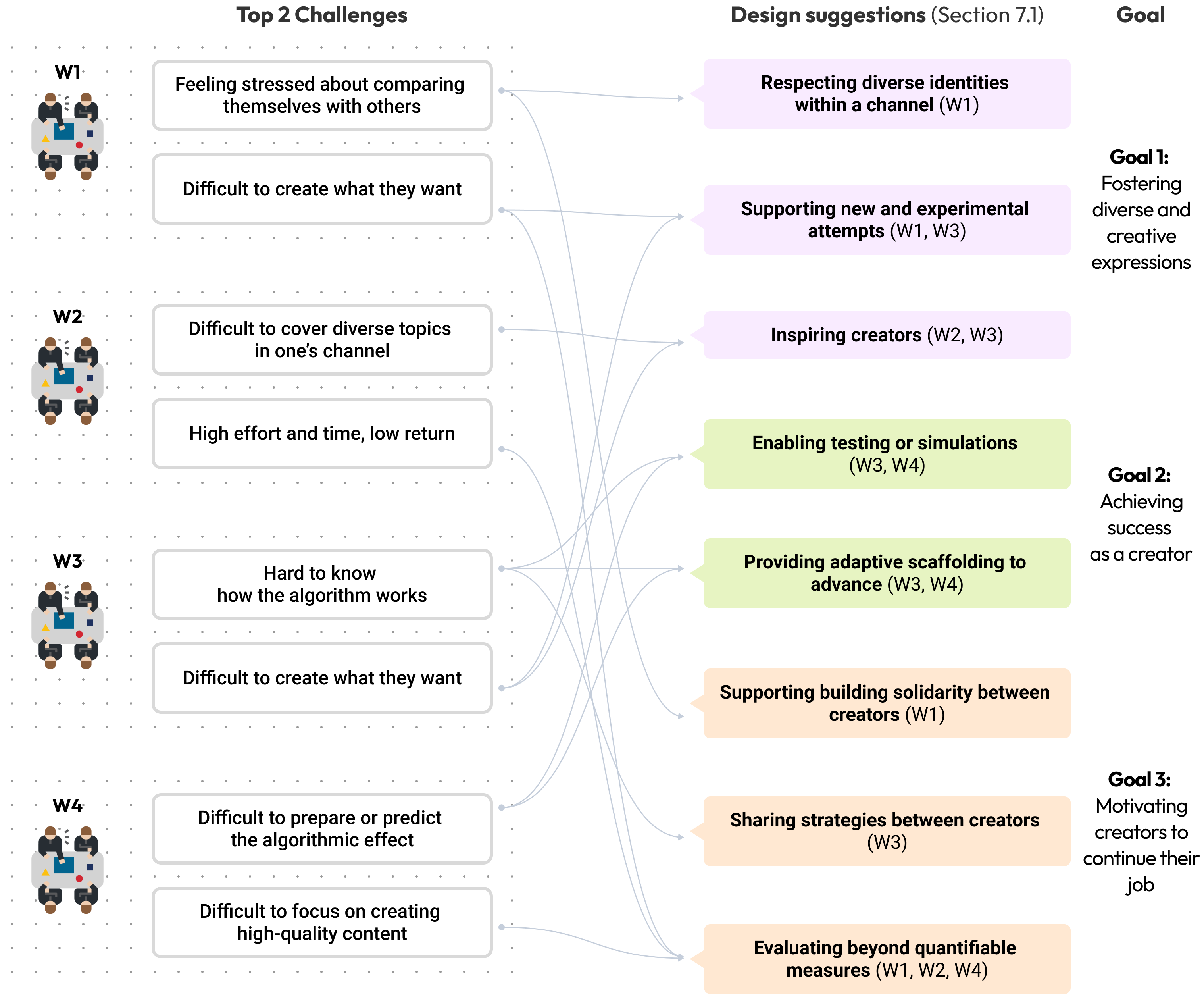
Bibtex
@inproceedings{10.1145/3544548.3581386,
author = {Choi, Yoonseo and Kang, Eun Jeong and Lee, Min Kyung and Kim, Juho},
title = {Creator-friendly Algorithms: Behaviors, Challenges, and Design Opportunities in Algorithmic Platforms},
year = {2023},
isbn = {9781450394215},
publisher = {Association for Computing Machinery},
address = {New York, NY, USA},
url = {https://doi.org/10.1145/3544548.3581386},
doi = {10.1145/3544548.3581386},
booktitle = {CHI Conference on Human Factors in Computing Systems},
numpages = {22},
keywords = {Creator economy, Algorithmic platform, Algorithmic experience, Creative labor, Gig economy, Folk theories, Participatory design},
location = {Hamburg, Germany},
series = {CHI '23}
}
This work was supported by the IITP grant funded by the Korean government (MSIT).
This work was also supported by National Science Foundation Awards and Good Systems, a UT Austin Grand Challenge to develop responsible AI technologies.

